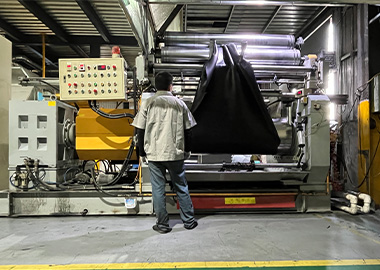Exploring the Importance and Functionality of Fuel Tubes in Automotive Applications
ജുലാ . 28, 2024 16:37 Back to list
Exploring the Importance and Functionality of Fuel Tubes in Automotive Applications
Understanding Fuel Tubes A Critical Component in Fuel Systems
Fuel tubes, also known as fuel lines, are essential components in any internal combustion engine, whether it's in automobiles, aviation, or marine applications. Their primary function is to transport fuel from the tank to the engine efficiently and safely. Given their crucial role in the operation of various vehicles and machinery, understanding fuel tubes is important for anyone involved in automotive or mechanical engineering.
Construction and Materials
Fuel tubes are typically made from specialized materials that can withstand the corrosive properties of fuel and the pressures typical in fuel systems. Common materials include rubber, plastic, and metal alloys. Each material has its unique advantages and is chosen based on the application's specific requirements, such as temperature, pressure, and chemical compatibility.
For instance, rubber tubes are often used in vehicles due to their flexibility and ability to absorb vibrations. However, over time, rubber can degrade due to exposure to fuel and high temperatures. On the other hand, metal fuel lines, often made from stainless steel or aluminum, offer superior durability and resistance to corrosion, making them ideal for high-performance applications or environments where fuel could be subjected to extreme conditions.
Types of Fuel Tubes
Fuel tubes can be categorized into two main types rigid and flexible. Rigid fuel lines are typically used in fixed applications where the routing of the line is set and does not require movement. These are often seen in the engine compartment or along the chassis of a vehicle. Flexible fuel tubes, however, are necessary in areas where movement can occur, such as the connection between the fuel tank and the fuel pump.
Each type of fuel tube has specific applications and advantages. Rigid lines are more resistant to punctures and physical damage, while flexible tubes are easier to install in tight spaces and can accommodate movement more easily.
fuel tube

Importance of Fuel Tubes in Safety
The integrity of fuel tubes is critical for safety. Fuel leaks can lead to fires, explosions, and environmental hazards. Thus, regular inspection and maintenance of fuel tubes are vital. Signs of wear include cracks, bulges, or discoloration. If any damage is found, replacing the fuel tube promptly is essential to ensure safe operation.
Modern technological advancements have introduced the use of fuel tubes designed with enhanced safety features. Some fuel lines are now equipped with barriers for additional protection against leaks, while others may include coatings that can detect any leaks by changing color.
The Future of Fuel Tube Technology
As the automotive industry shifts towards electrification and alternative fuels, the innovation surrounding fuel tubes is evolving as well. Electric vehicles (EVs) and hydrogen-powered vehicles require specialized fuel delivery systems, including tubes that can handle different types of fuels and pressure conditions. Researchers are developing new materials and designs that improve efficiency, safety, and environmental performance.
Additionally, the introduction of smart technologies, such as sensors integrated into fuel tubes for monitoring pressure and flow, is on the rise. These innovations could provide real-time data to drivers and technicians ensuring better maintenance and enhanced safety.
Conclusion
Fuel tubes are more than just simple pipes; they are vital components that ensure the safe and efficient operation of fuel systems across various applications. Understanding their construction, types, and importance is crucial for maintaining vehicles and machinery. As technology advances, the future of fuel tubes looks promising, promising greater safety, efficiency, and adaptability to new fuel sources. By focusing on these critical components, we can contribute to a safer and more sustainable approach to fuel consumption.
